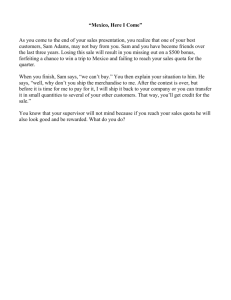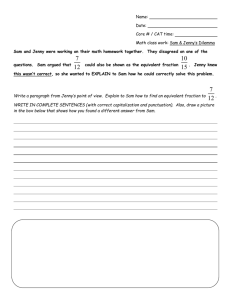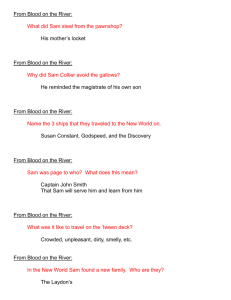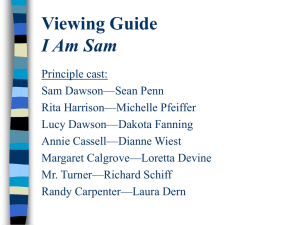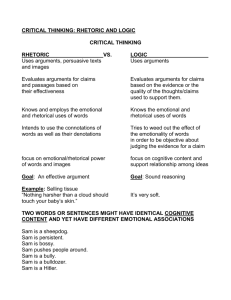A, B and C List Characters
advertisement
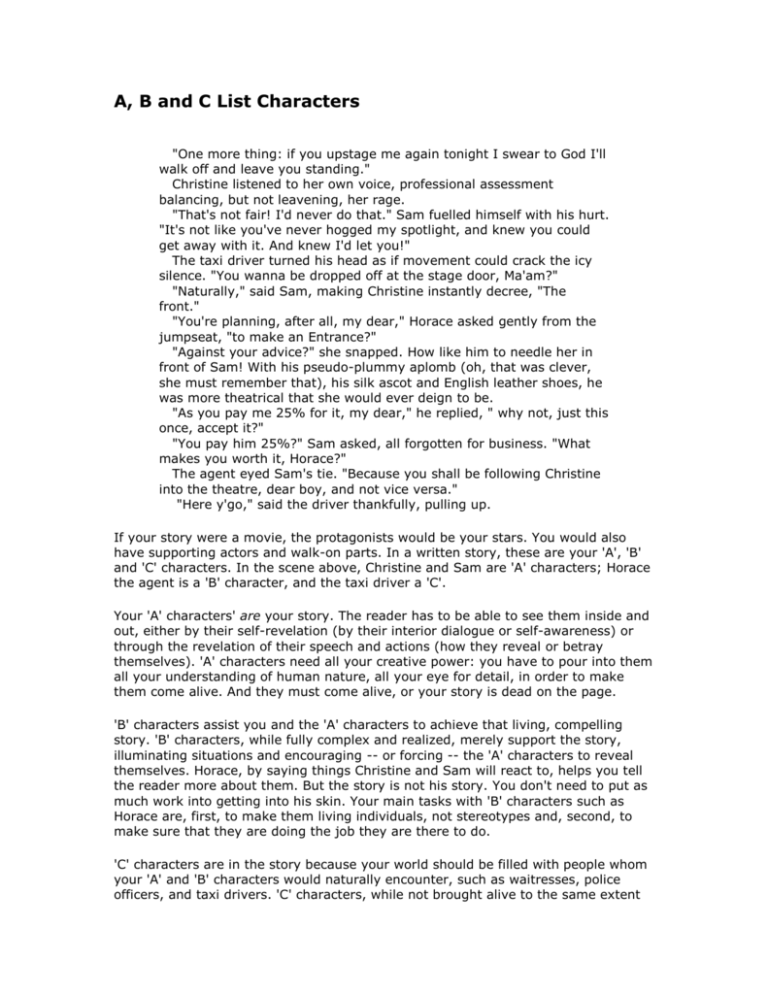
A, B and C List Characters "One more thing: if you upstage me again tonight I swear to God I'll walk off and leave you standing." Christine listened to her own voice, professional assessment balancing, but not leavening, her rage. "That's not fair! I'd never do that." Sam fuelled himself with his hurt. "It's not like you've never hogged my spotlight, and knew you could get away with it. And knew I'd let you!" The taxi driver turned his head as if movement could crack the icy silence. "You wanna be dropped off at the stage door, Ma'am?" "Naturally," said Sam, making Christine instantly decree, "The front." "You're planning, after all, my dear," Horace asked gently from the jumpseat, "to make an Entrance?" "Against your advice?" she snapped. How like him to needle her in front of Sam! With his pseudo-plummy aplomb (oh, that was clever, she must remember that), his silk ascot and English leather shoes, he was more theatrical that she would ever deign to be. "As you pay me 25% for it, my dear," he replied, " why not, just this once, accept it?" "You pay him 25%?" Sam asked, all forgotten for business. "What makes you worth it, Horace?" The agent eyed Sam's tie. "Because you shall be following Christine into the theatre, dear boy, and not vice versa." "Here y'go," said the driver thankfully, pulling up. If your story were a movie, the protagonists would be your stars. You would also have supporting actors and walk-on parts. In a written story, these are your 'A', 'B' and 'C' characters. In the scene above, Christine and Sam are 'A' characters; Horace the agent is a 'B' character, and the taxi driver a 'C'. Your 'A' characters' are your story. The reader has to be able to see them inside and out, either by their self-revelation (by their interior dialogue or self-awareness) or through the revelation of their speech and actions (how they reveal or betray themselves). 'A' characters need all your creative power: you have to pour into them all your understanding of human nature, all your eye for detail, in order to make them come alive. And they must come alive, or your story is dead on the page. 'B' characters assist you and the 'A' characters to achieve that living, compelling story. 'B' characters, while fully complex and realized, merely support the story, illuminating situations and encouraging -- or forcing -- the 'A' characters to reveal themselves. Horace, by saying things Christine and Sam will react to, helps you tell the reader more about them. But the story is not his story. You don't need to put as much work into getting into his skin. Your main tasks with 'B' characters such as Horace are, first, to make them living individuals, not stereotypes and, second, to make sure that they are doing the job they are there to do. 'C' characters are in the story because your world should be filled with people whom your 'A' and 'B' characters would naturally encounter, such as waitresses, police officers, and taxi drivers. 'C' characters, while not brought alive to the same extent as 'B' characters, should never be cardboard flats. They should simply be people there isn't time to learn about in this particular story. The taxi driver in the scene above, for instance, should have the potential of becoming the 'A' character in his own story. We should be able to imagine him blowing off stream to his wife: 'You'll never guess who I had in the back today and, boy, was it a ride from hell!' The scene you've written happens not to be his story, just as it is not Horace's story. There is no point in fleshing either of them out if this does not advance the telling of Christine and Sam's story. You need from your 'C' and 'B' characters only what helps you propel the narrative, and nothing more. It is Christine and Sam who need everything you've got. One test of a writer is how he/she peoples his/her fictional world. A fully realized 'A' character will not be found living among stereotypes or nonentities, just as properly created 'B' and 'C' characters will not be so distractingly interesting as to overshadow the 'A' characters. All should have their place. It is your job to give them what they need, so that they can give the story what it needs. Horace stepped from the taxi into the babbling crowd, murmuring, "Ah, how they love her." He held the door for Christine, whose heart lit as she immersed herself in her fans. How she loved them! Everything forgiven within this flood of adoration, she turned to Sam. He smiled in return. One day they would love him as much. Maybe more.
